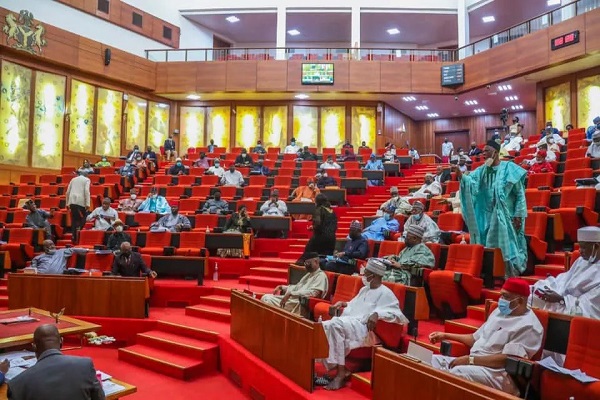
The Nigerian House of Representatives has announced an interactive session scheduled for Monday, November 18, 2024, to discuss President Bola Ahmed Tinubu’s controversial tax reform bills. The announcement was made by Akin Rotimi, the House’s spokesman, in a statement released on Sunday.
The session, to be held at the Temporary Chamber of the House of Representatives starting at 10:00 am, aims to foster dialogue and understanding among lawmakers, Nigerians, and stakeholders on the proposed reforms. According to Rotimi, the engagement will allow members of the House to seek clarifications, pose critical questions, and gain insights into the bills’ potential impact.
“The interactive session provides Members of the House with a platform to engage directly with the principal promoters of the tax reform bills from the executive arm of government,” Rotimi stated. “This understanding is vital to strengthening the legislative process and enhancing Members’ contributions to the deliberations on these bills.”
The bills in question, submitted to the National Assembly by President Tinubu on October 3, 2024, include the Nigeria Tax Bill 2024, the Tax Administration Bill, the Nigeria Revenue Service Establishment Bill, and the Joint Revenue Board Establishment Bill. These proposals aim to overhaul Nigeria’s tax system, introducing measures such as a revised value-added tax (VAT) derivation model and a unified revenue collection framework.
Opposition and Support
Despite their intended objectives, the bills have sparked widespread controversy. The Northern Nigeria Governors’ Forum has strongly opposed the proposed VAT derivation model, arguing it could exacerbate regional inequalities. Similarly, the National Economic Council has expressed reservations about aspects of the reforms.
However, President Tinubu has maintained that the tax reform bills should undergo regular legislative processes to ensure adequate input from all stakeholders. He has emphasized that these reforms are crucial for modernizing Nigeria’s tax system and improving revenue generation.
Taiwo Oyedele, chairman of the Presidential Committee on Fiscal Policy and Tax Reforms, has also defended the bills, describing them as essential for creating a fairer and more equitable tax system. Some Nigerian economists have echoed this sentiment, suggesting that the reforms could significantly boost the nation’s revenue base if implemented effectively.
A Step Toward Resolution
The House’s interactive session is seen as a crucial step in resolving the controversies surrounding the reforms. By engaging directly with stakeholders, lawmakers hope to address public concerns and ensure the proposed policies align with Nigeria’s fiscal goals.
The outcome of Monday’s session will likely shape the trajectory of the tax reform bills as they move through the legislative process.
